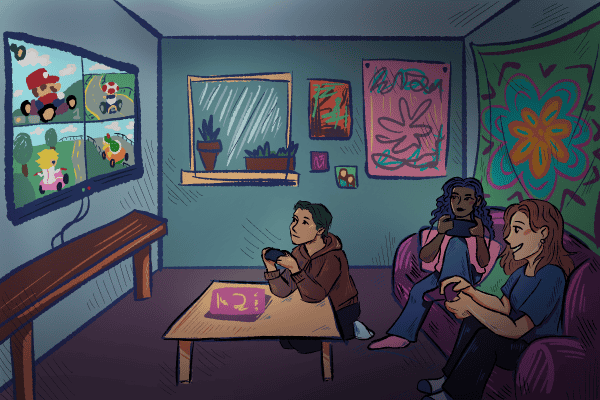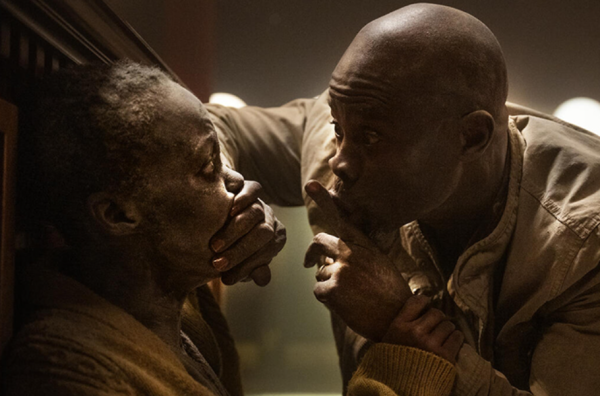The importance of incident reporting to the UA community
August 8, 2022
This summer, thousands of incoming students passed through the doors of the University of Alabama’s Student Center for the orientation Bama Bound.
From dining halls and housing to action cards and registration, these students learn about every aspect of campus life and what it means to be part of the campus community. One facet of orientation is learning how to positively impact campus culture and uphold the Capstone Creed, which states that UA students will “pursue knowledge; act with fairness, integrity and respect; promote equity and inclusion; foster individual and civic responsibility; and strive for excellence.”
Upholding these ideals is every student’s duty; yet incidents of discrimination, harassment and biased speech still happen at times.
Anthony Williams, a senior majoring in accounting and the president of the Black Student Union, said he and his friends have experienced such incidents, and sometimes it feels like there’s no defense.
“You might have that random weekday out at night, and you have an incident happen. Somebody wants to scream something while they’re driving … and speed off. Somebody wants to throw something or say something,” Williams said. “It’s like, what can you say? You don’t know who it was; if they’re in a car, the car has sped off, so it’s like, okay, what do you do at that point?”
To decrease these problems, the University is equipping students with the tools to address these issues through avenues like incident reporting.
“The reason that we’re asking people to report is that first of all, safety is one of the primary responsibilities in areas that we’re concerned about here on the campus, and if people don’t report things that are happening, there’s no way that we can get ahead of it, there’s no way that we can look into it, that we can be advised,” said Christine Taylor, the Vice President of the Division of Diversity, Equity and Inclusion. “We have an outstanding police department here, but they’re really no stronger than the community that works with them.”
Taylor said that if you see something, hear something, or if something happens to you, you should say something.
“Keeping it to yourself does not add to strengthening our community overall, which is what we’re working towards doing both in a safety measure, as well as building a sense of community, among all community members,” Taylor said.
According to the UAct website, incident reporting is for any student, faculty or staff member, applicant or campus visitor who has suffered or witnessed discrimination, harassment, sexual misconduct or retaliation.
Through the website, anyone who has been a victim of or witnessed an incident is given multiple avenues for reporting to various offices within the University.
The website allows people to choose whether they were a victim or witness. Then, respondents can select their University affiliation and one of various reporting categories like reporting hate or bias, reporting hazing, making a confidential report of sexual misconduct and more.
Additionally, the website includes a document that clarifies which offices to contact for specific incidents, that lets people know what office to report to in certain instances, depending on what happened and who the offender was.
If someone is unsure about where to send their report, Taylor said all incidents go to a central clearing house and are then redirected to the appropriate office. This means submitting an online report with sufficient information is more important than contacting the right office.
Beth Howard, the Executive Director of Equal Opportunity and Title IX Programs, said when her office hears of a possible incident, they reach out to the complainant and send a letter with their options and resources.
“[After] that, they can come talk to us and give a report, or they cannot. At that point, it’s really in their hands, what they want to do,” Howard said.
She said there is a caveat; if there is a campus safety issue, the office must move forward with it. In that case, the office will notify the complainant and protect their anonymity. Howard said they consider the complainant’s concerns because moving forward is a personal decision, and there’s no right or wrong answer.
“I think some people say, you know, like, ‘you’ve got to report this,’ and, yes, I want everything reported, but if it’s better for the person to handle it in a different way, counseling, or whatever that is, that’s their personal decision to make,” Howard said.
For students who aren’t interested in the formal incident reporting process but still want to address an issue, there’s an option to make an informal resolution.
Howard said they’ve seen more students making informal resolutions lately because the informal resolution solutions aren’t as “serious” as the investigation resolution.
“Maybe in an investigation, we find someone responsible and … maybe we do like a suspension or, you know, counseling, things like that. Maybe in the informal resolution, what that complainant wants is a letter of apology; now, we’re not going to sanction someone to do that,” she said.
For those who choose to proceed with investigation resolutions, the process begins with a full statement, which Howard said usually takes a couple of hours to complete because they’re trying to get as much information as possible.
“Then they’ll let us know if there’s witnesses, they have relevant information, any documents they have, we start gathering that we might make our own decisions, there might be security footage that we need to look at. So, we’re looking at that or are different things that we might be able to utilize,” Howard said.
She said even though the office doesn’t have subpoena power and are limited in some ways, they have a lot of access to the University.
“Then we talk to the other party, the accused party, and they have an opportunity to give their side of the story. Once we have felt like we have gotten all the information we needed, the investigators put together a very detailed and usually, you know 40 plus pages investigative report that’s got all the information in it, and the parties get to look at it, and they get to respond to that and then at that point, it would either go to a hearing, or we would issue a funding letter,” she said.
Howard said since so many factors go into an investigation, the timeframes for the investigative resolution can vary.
She said she’s glad they have both options for students, along with resources for those who choose not to report.
For those intimidated by incident reporting, Howard said don’t be afraid to come in and ask every question you have.
“Just because you come and talk to us doesn’t mean that there’s going to be a next step without you saying, ‘that’s what I want to do,’” she said.
Howard said she encourages people to report as much as possible, even if they don’t want to take action. It helps keep the offices informed about what’s happening with students outside of just hearing about it, which can impede how much they can help.
“Say that I hear about, somebody was assaulted at this residence hall, alright, if I don’t know who it is, I can’t reach out to the person to give them their options, or if I do know who it is, and that person doesn’t want to talk to me, it really limits some of the stuff we can do,” she said.
Howard said that the office still tries to do something in these situations.
“It might mean that we put extra patrols in that area, or we, you know, target training for those areas or something like that, but it does kind of tie our hands sometimes when we don’t have the information we need, but we’re always out there looking for that to see what we could come up with and how we can maybe address it,” she said.
The Title IX office not only uses incident reporting to stay informed, but it also uses it to evaluate campus trends so they can coordinate a response with other offices.
Reviewing incident reports allows them to determine if their policy is addressing everything, if there is conduct that doesn’t fit in a previously defined category, or if any other gaps need to be filled.
“I also think that incident reporting decreases the number of incidents because if people know this is a place where folks are going to report things that happen, then maybe that will deter something from happening,” Howard said.
According to the 2021 Annual Campus Security and Fire Safety Report, UAPD collects crime statistics data from the Jeanne Clery Act, through a centralized reporting channel that may collect incident reports.











